It’s DARK KNIGHT WEEK, and we talked to an all-star array of creators about how they discovered Frank Miller’s classic.
You always remember your first.
For comics fans, The Dark Knight Returns is one of those “Where were you when” moments. It’s not a book you vaguely remember picking up. It resonates, whether you read it as it came out or years later in trade.
We asked some of comics’ top pros — including superstars like current Batman artist Greg Capullo, Darwyn Cooke and Mike Allred — about various elements of this seminal classic. We’ll be publishing their answers all week.
To kick it off:
What’s your recollection of reading The Dark Knight Returns the first time?
Mike Allred (Batman ’66, Silver Surfer)
I can pinpoint the exact month I returned to comics after the death of Gwen Stacy, which ended my childhood collecting habit. I was writing my first screenplay (Dead Air) and decided to start using my questionable art skills to storyboard it. My good friend, Charlie Custis, told me I should just turn it into a comic book.
I still wasn’t over the trauma of Gwen’s death and, other than an obsession for Barry Smith Conans, had largely ignored comics for years. Charlie was persistent and dumped a bunch of comics on me, including the first four issues of Mister X, Frank Miller Daredevils, and Miller’s latest, The Dark Knight Returns. In fact, he gave me first print copies of the four original issues in what was then called “the prestige format” (he had extras). The format alone blew me away. With a few exceptions, I’d only ever seen comics in their cheap pulpy form. This was square bound on beautiful high-quality paper. I saw price guides showing they were worth a lot of money and felt the least I could do was open it. And open it I did. A positive Pandora’s Box that literally changed the path of my life. And to nail down the time frame, there were two more issues of Watchmen yet to be released.
—
Greg Capullo (Batman)
I got it in its collected format. I was blown away, of course. I think that it’s one of the greatest superhero stories ever told — a masterpiece. Visually and narratively storytelling at its best. I will love it always. It’s timeless.
—
Ron Marz (John Carter: Warlord of Mars)
I can remember driving to a neighboring town, to the October Country in New Paltz, N.Y., to get the first issue of DKR when it was released. It was the first time I had seen something in prestige format, and I fell in love with the format immediately. It was weighty and beautiful. It felt important. Then when I got home and read it, I was utterly enthralled. It was the best comic I had ever read, bar none. That was a seismic moment in my life, because it exposed me to what comics could be. It sparked in me a serious desire to write comics. Four years later I was doing it.
—
Fred Van Lente (Ivar, Timewalker)
Oddly enough, I remember it very vividly, because of the circumstances surrounding it. I was in the eighth grade and very religious back then (United Church of Christ, a super liberal denomination — like one step down from Unitarian) and was attending a UCC Youth Synod (which is like a church congress) in downtown Cleveland, and I had the trade with me because my friend liked it, and I really liked it, and after I finished it, I had my first real kiss from a girl who really liked me (another one of the youth synod … uh … synodpersons?) but she was the girlfriend of another attendee but he encouraged us to hook up but then after we left the synod none of us ever saw each other again.
So it was odd. But I still have that same dogeared Dark Knight trade.
Lovers come and go, but COMICS ARE FOREVER.
—
Greg Smallwood (Moon Knight)
I bought the 10th anniversary edition when it came out and read it the summer before I started high school. At the time, I was a bit put off by the stylized tone of the art and story. I couldn’t quite wrap my head around Batman riding a horse or Superman being a political pawn. I had already read Batman: Year One and really enjoyed Miller and Mazzucchelli’s realistic take on the character, so the cartoon-y, satirical nature of DKR threw me off. I didn’t hate the book but I didn’t love it at first.
I had the same reaction that same summer when I watched Blade Runner for the first time. I needed to watch it again before I could process it. And just like Blade Runner, DKR kept getting better and better with each successive viewing. By the end of the summer, DKR became one of my all-time favorite comics. It’s a master class in storytelling.
—
Mark Waid (All-New All-Different Avengers)
I read it issue by issue and will never forget the impact it had on me. No one had ever seen anything at all like it in comics — that level of sophistication married to mainstream superheroes — and it was a revelation to me.
—
Sonny Liew (Doctor Fate)
I was a little too young to appreciate the thing as a whole, I think, when I first read it — but there were passages that were absolutely enthralling. I got it as a trade — one of my earliest purchases from a proper comic-book store (before that I’d gotten my comics, like 2000AD, from what were effectively newsstands in Malaysia and Singapore). I can’t quite remember what prompted me to pick it up — except maybe there was buzz around it, the special place it was given on the shelves, maybe.
—
Liam Sharp (Madefire)
I was assisting the late, extremely great, Don Lawrence — one of my all-time artistic heroes — and he told me about it. I bought a copy of the trade in the old Forbidden Planet store in London and read it in one sitting. I had been used to more polished art as a preference, but this changed everything in the same way Bill Sienkiewicz had done when I read his Moon Knight ‘Hit It’ story. It was about the flow, the energy, the panel-to-panel storytelling. It blew me away.
—
Jim Zub (Wayward)
I was 10 years old in 1986 when Dark Knight first came out and was in the midst of my hardcore Marvel fan period, so it wasn’t something I understood or sought out. I remember seeing a poster up in my local comic shop with Batman as this old cinder block-looking guy and Robin as a girl and I thought “That’s weird.” That was about it at the time.
I wouldn’t actually sit down to read Dark Knight until I was in high school and it was collected all in one book. By that point it was already a modern classic and I’d heard it was the “best Batman story of all time.” It really drew me in. It was visceral, dripping with atmosphere.
—
Jamal Igle (Molly Danger)
My first memory of the series (because, let’s be honest here, I’m old enough to have seen it in single issues) was walking into the Forbidden Planet that used to be on 59th Street in Manhattan. I think at that point Issue #2 had just shipped and being a student at the High School of Art and Design, it’s what everyone was talking about.
Now, keep in mind I didn’t know what it was, I didn’t know who Frank Miller was. When I read it I had no preconceived notions of the series at all and was blown away by the sheer brutality. Not just the violence, which really hadn’t been a part of the Batman stories I’d read, but the emotional brutality of it. It was much more raw than I had been used to in terms of comics at that point.
—
Aaron Lopresti (Metamorpho)
I have a history of being late to the party on a lot of hit comics. I saw it come out and sort of didn’t really get the art style and what all of the notoriety was about. Then when the second issue came out and the first issue tripled in price, I thought I had better pick this up. So I did and then read it as Issues #3 and #4 came out. I was captivated by the portrayal of the Batman and the Joker in the series and by the social commentary. It was just really different than anything I had ever read.


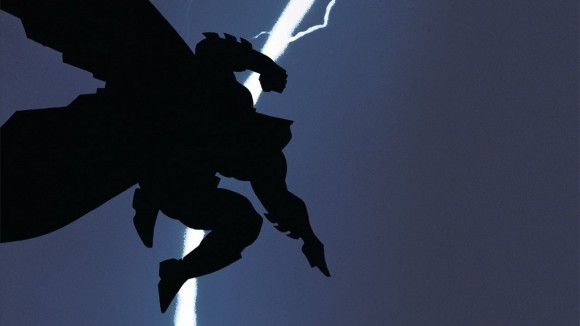
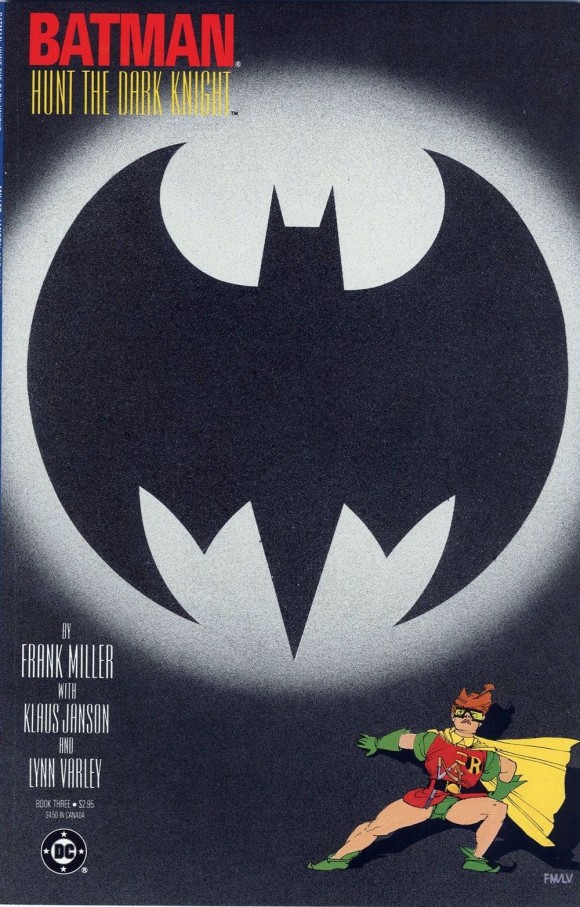

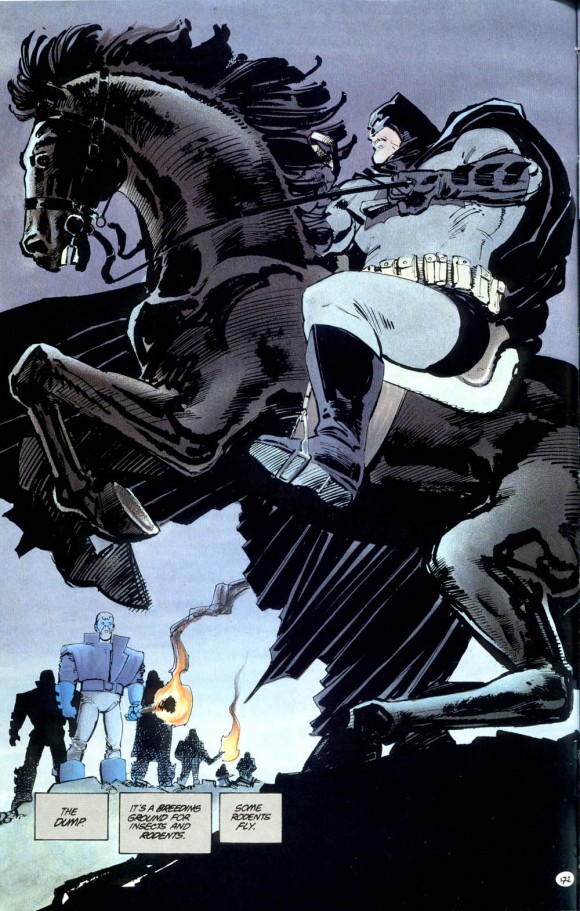
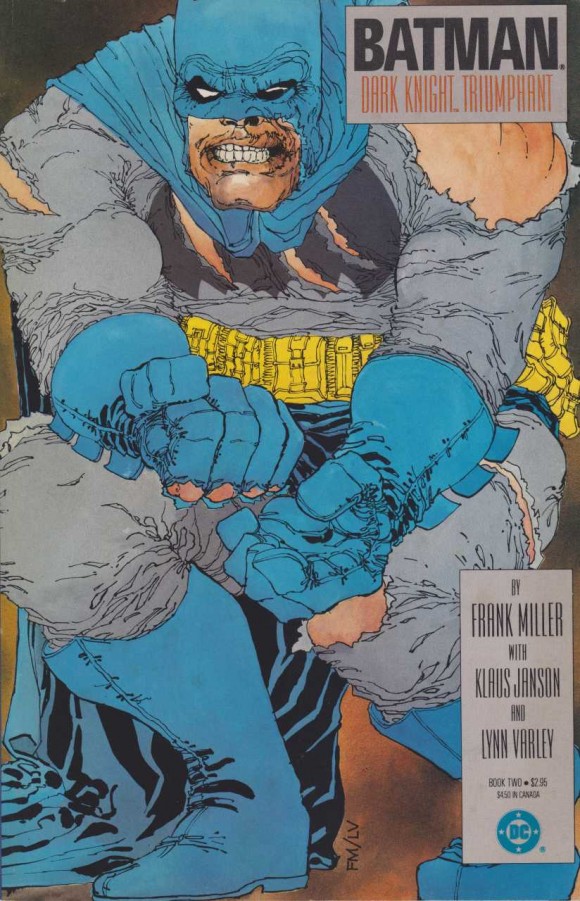
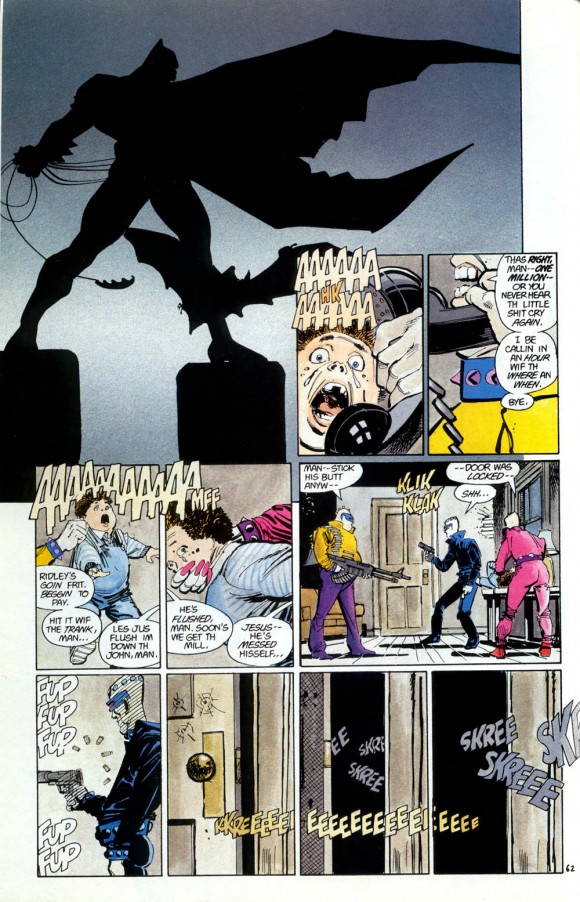
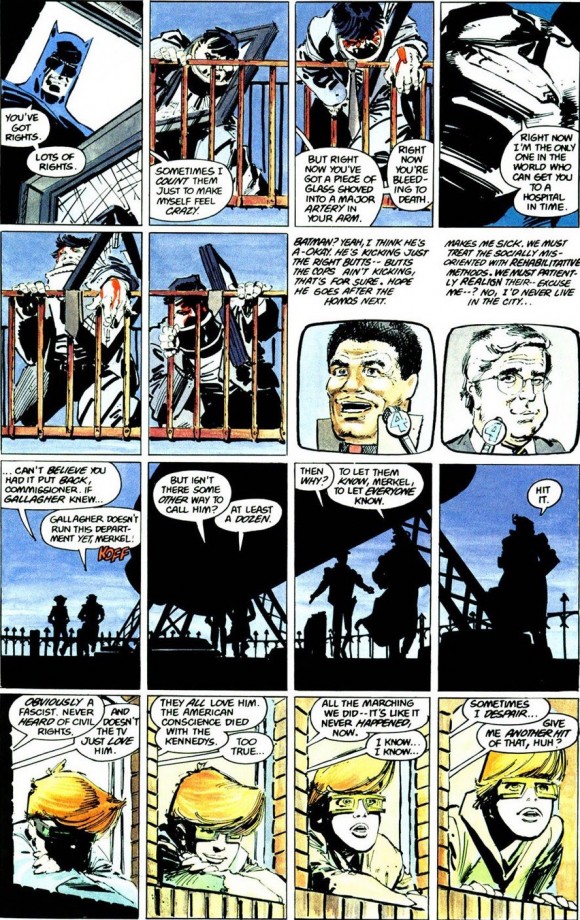
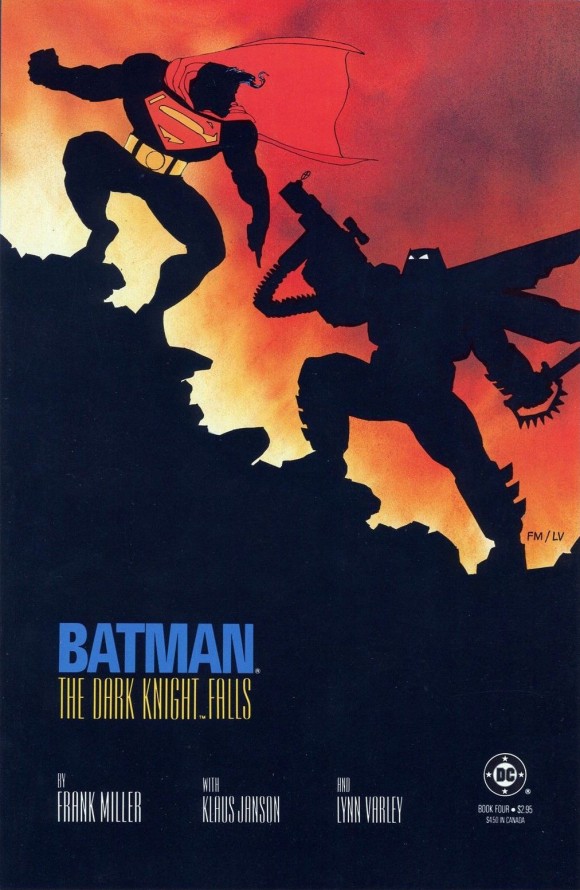
Trackbacks/Pingbacks